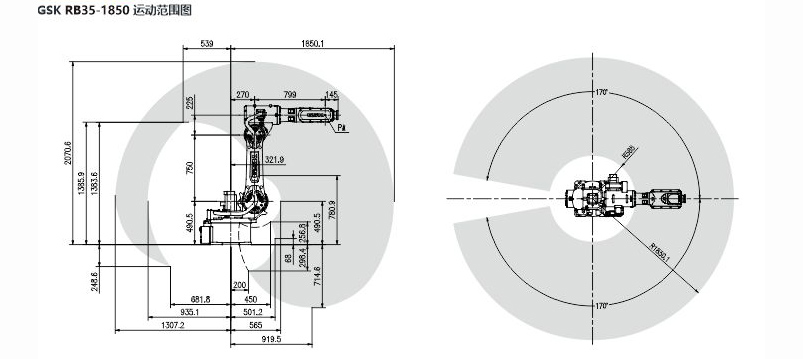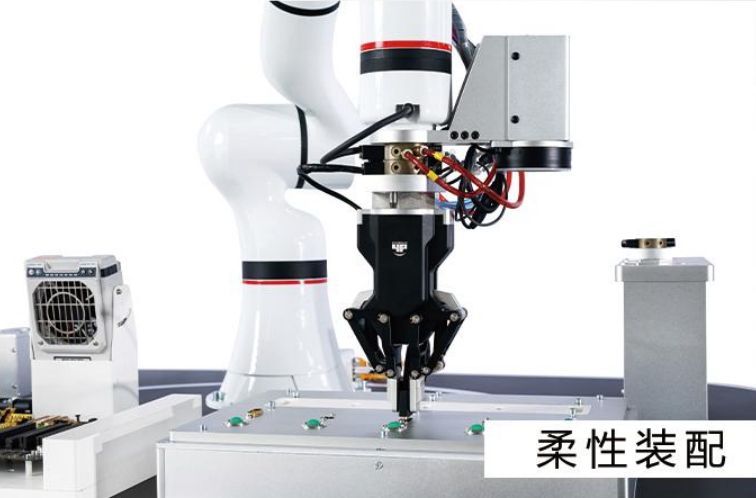Doug Lawson is the chief executive officer of ThinkIQ.
Today’s manufacturing CIOs are responsible for a wide variety of issues on the shop floor, ranging from IoT security to supporting business operations and modernizing the smart factory. A key focus for the majority of manufacturing CIOs is to adapt to the changing roles that operation technologies (OT) and information technologies (IT) play. With all these responsibilities, CIOs are also faced with inflation, labor market shortage and global supply constraints in today’s economy. Successful leaders should strive to improve supply chain transparency, reallocate resources, outsource manufacturing operations and modernize their smart factories. Triaxial Positioner

The top business priorities for manufacturers in 2023 should be to improve profit margins while reducing operating costs. In order to do this, CIOs should consider looking to Industry 4.0 solutions to proliferate their smart factories. With help from Industry 4.0 technologies, smart manufacturing is making operations faster, safer, more efficient and more profitable for organizations across a multitude of industries.
Robotics in the workplace has progressed from costly, bulky and conventional bolted-to-the-floor robots, which are unscalable for connected factories, to relatively affordable, adaptable, automated intralogistics smart robots. Intralogistics smart robots are specialized machines that automate specific processes with intelligent and sensory awareness capabilities that allow them to operate independently from humans. There are many use cases for these robots, such as automating mundane tasks, efficiently transporting or delivering materials and attracting new talent to offset labor shortages during the "great resignation."
As a result, CIOs are recognizing the evolution of using intralogistics smart robots to make their smart factories more efficient. According to the 2020 Gartner Smart Manufacturing Strategy and Implementation Trends Survey, "71% of manufacturers [are] piloting, implementing or using autonomous things (e.g., robotics, automated guided vehicles [AGVs] and autonomous mobile robots [AMRs]) as a crucial part of their smart factory initiative."
By 2026, at least 75% of large enterprises are expected to adopt some form of intralogistics smart robots in their factories. The reason for this accelerated adoption is the growing demand for more automated processes to reduce costs and combat labor constraints on the manufacturing floor.
Manufacturing CIOs should understand which smart robot use cases will be most relevant for their business operations to take full advantage of the potential benefits. After all, there are at least 29 different ways a smart robot can assist with manufacturing operations, according to Gartner.
For example, some smart robots can act as autonomous lifts or yard trucks, or manual loaders to transport goods on the shop floor. They can also collaborate alongside human workers for in-aisle picking or transferring goods from robot to person. Manufacturers can implement engineered automated robotic systems, which can provide intelligent robotic fulfillment systems, automated micro-fulfillment centers or even assist with transferring materials from robot to robot.
Smart robots can also be more fit for purposes, such as delivering, floor-cleaning, disinfecting, inspection or scanning robots. Others can be used as robot software to interconnect various fleets of robots under a software platform. These innovative software solutions bring continuous monitoring and inventory tracking to the shop floor.
CIOs can further optimize their smart factories by collecting data from machines equipped with smart sensory cameras and visioning technology. Using advanced artificial intelligence (AI) and machine learning (ML) to correlate data, this technology can provide visibility in the supply chain, identify root cause issues and deliver KPIs across plants.
Visioning technology can help extract actionable insights within the data, identifying previously unearthed root issues and revealing opportunities for improvement. This solution gives executives real-time reports on crucial manufacturing processes, resulting in increased yield, efficiency and safety throughout the factory and filling in the blind spots where smart robots aren’t available.
Some challenges CIOs might face while trying to implement these solutions include analyzing large amounts of data, which takes time away from employees. To avoid overwhelming employees with sifting through these large amounts of data, AI and ML could be leveraged to automate the task and analyze the data for them.
Another obstacle smart manufacturers should be aware of is ensuring connectivity and visibility beyond just the four walls of the factory. If implemented correctly, the visioning technology should pull insights from not just within the factory but through supply chain procedures and the overall enterprise for optimized connectivity.
Smart sensory cameras on the shop floor can also break, be moved or be obstructed, which blocks the AI from working properly. For example, if a vehicle entering the yard has a license plate covered with dirt, visioning technology won’t be able to detect the specific vehicle.
Manufacturing CIOs should collaborate with their supply chain leaders in order to identify what smart robot and vision technology use cases are most relevant and would yield the most benefit for their smart factories. With a large number of use cases, it is crucial for CIOs to approach implementing these smart solutions holistically and ensure communication and transparency across the business.
Business leaders should also avoid scaling their smart factories too big and too fast, as this will require excessive downtime as they train employees with the new technologies being implemented. Gradually introducing these technologies will allow time for workers to become adjusted to new procedures.
These Industry 4.0 technological innovations are an exciting advancement for smart manufacturing firms. By leveraging intralogistics smart robots and visioning technology, CIOs can realize the true potential of automating their smart factory processes while reducing costs and combating labor constraints. Those who fail to recognize its advantages will likely fall behind as smart factories are digitally transformed.
Forbes Technology Council is an invitation-only community for world-class CIOs, CTOs and technology executives. Do I qualify?
I'm a general assignment reporter where I focus on cryptocurrency, NFTs, blockchain technology. I'm passionate about highlighting Latin founders. I also co-edit the 30 Under 30 Retail and E-commerce and Food & Drink lists. Have a tip? Reach out at mgsantillana-linares@forbes.com
I'm a general assignment reporter where I focus on cryptocurrency, NFTs, blockchain technology. I'm passionate about highlighting Latin founders. I also co-edit the 30 Under 30 Retail and E-commerce and Food & Drink lists. Have a tip? Reach out at mgsantillana-linares@forbes.com
I am a San Diego-based general assignment reporter covering technology with a focus in AI and consumer tech. I graduated from the Missouri School of Journalism with a master's degree in magazine journalism and before that, got my bachelor's degree in investigative journalism. Before Forbes, I was a business reporter at Missouri Business Alert and a food writer Vox Magazine in Columbia, Missouri. I have also worked for the Ewing Marion Kauffman Foundation and Startland News in Kansas City. You can reach me at rshrivastava@forbes.com
I am a San Diego-based general assignment reporter covering technology with a focus in AI and consumer tech. I graduated from the Missouri School of Journalism with a master's degree in magazine journalism and before that, got my bachelor's degree in investigative journalism. Before Forbes, I was a business reporter at Missouri Business Alert and a food writer Vox Magazine in Columbia, Missouri. I have also worked for the Ewing Marion Kauffman Foundation and Startland News in Kansas City. You can reach me at rshrivastava@forbes.com
I joined Forbes as the Europe News Editor and will be working with the London newsroom to define our coverage of emerging businesses and leaders across the UK and Europe. Prior to joining Forbes, I worked for the news agency Storyful as its Asia Editor working from its Hong Kong bureau, and as a Senior Editor in London, where I reported on breaking news stories from around the world, with a special focus on how misinformation and disinformation spreads on social media platforms. I started my career in London as a financial journalist with Citywire and my work has appeared in the BBC, Sunday Times, and many more UK publications. Email me story ideas, or tips, to iain.martin@forbes.com,
I joined Forbes as the Europe News Editor and will be working with the London newsroom to define our coverage of emerging businesses and leaders across the UK and Europe. Prior to joining Forbes, I worked for the news agency Storyful as its Asia Editor working from its Hong Kong bureau, and as a Senior Editor in London, where I reported on breaking news stories from around the world, with a special focus on how misinformation and disinformation spreads on social media platforms. I started my career in London as a financial journalist with Citywire and my work has appeared in the BBC, Sunday Times, and many more UK publications. Email me story ideas, or tips, to iain.martin@forbes.com,
Meltwater’s VP of Market Innovation & Transformation, helping global organizations build resilience to risks in the information environment. Read Ajay Khari's full executive profile here.
Rende is the founder & CEO of Rhymetec, a cybersecurity firm providing cybersecurity, compliance and data privacy needs to SaaS companies. Read Justin Rende's full executive profile here.

Assembly Robot Arm Arjun Bhatnagar is cofounder and CEO of Cloaked, a consumer-first privacy startup dedicated to bringing humanity back to the internet. Read Arjun Bhatnagar's full executive profile here.